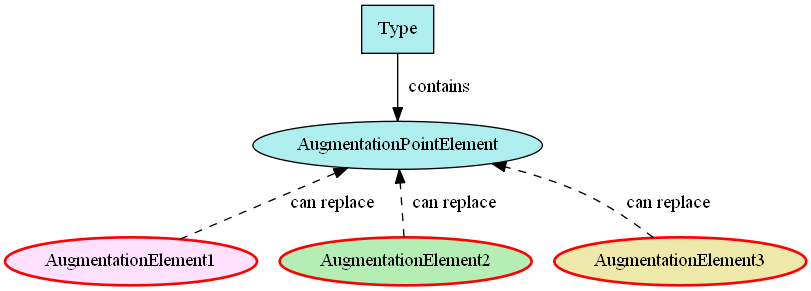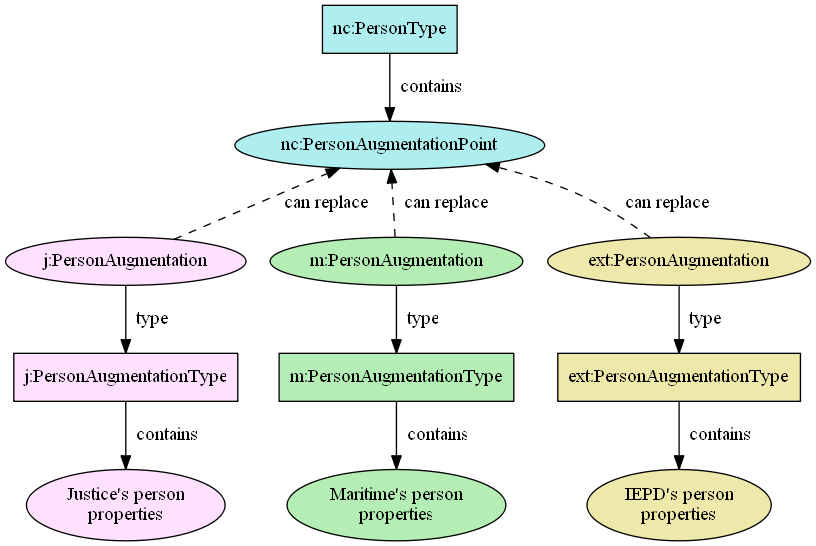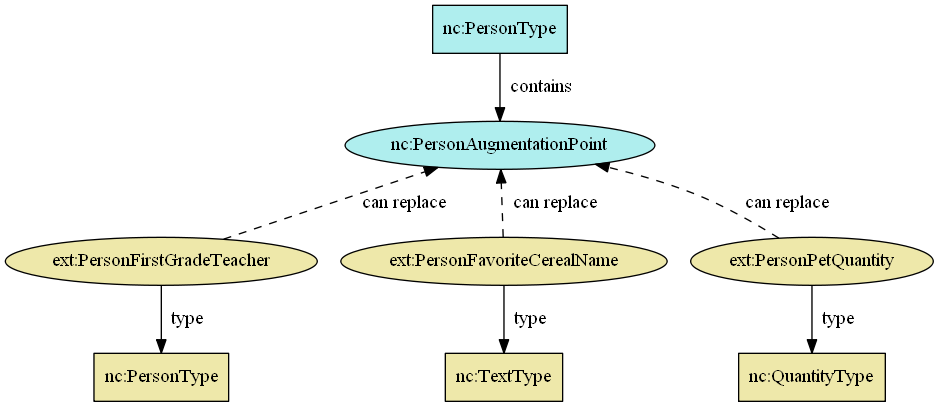- Home
- Reference
- Model Concepts
- Augmentations
- Augmentation Elements
Augmentation Elements
Augmentation elements are the additional content to be used along with a type from a different namespace. This is done by making each augmentation element substitutable for the augmentation point element of the original type.
NIEM has two different ways of creating augmentation elements. The most common is by creating a container element and type that bundles related additions together into a single block, and making the container element substitutable for the augmentation point element. The other method is to make each of the additions individually substitutable for the augmentation point element, without being bundled together.

Containers
In NIEM releases, augmentations are created as containers that hold and group the additional content together. The name of the container element corresponds to the type being augmented, with the "Type" representation term being replaced by "Augmentation". This augmentation element is made substitutable for the augmentation point element of the desired type.
| Augmentation Container Element | Type | Substitutable for |
|---|---|---|
| intel:PersonAugmentation | intel:PersonAugmentationType | nc:PersonAugmentationPoint |
| j:PersonAugmentation | j:PersonAugmentationType | nc:PersonAugumentationPoint |
The intel:PersonAugmentationType contains properties like intel:AgencySubjectInterest and intel:PersonSystemIdentification.
The j:PersonAugmentationType contains properties like j:PersonAdultIndicator and j:PersonDrugAlcoholHistoryText.
This diagram shows a type with an augmentation point element, substitutable by three augmentation container elements:

Direct substitutions
In an IEPD, rather than creating a container to bundle properties together into a single augmentation container element, each property itself may be made directly substitutable for an augmentation point element.
For example, local element PersonFirstGradeTeacher may be defined to be substitutable for nc:PersonAugmentationPoint.
